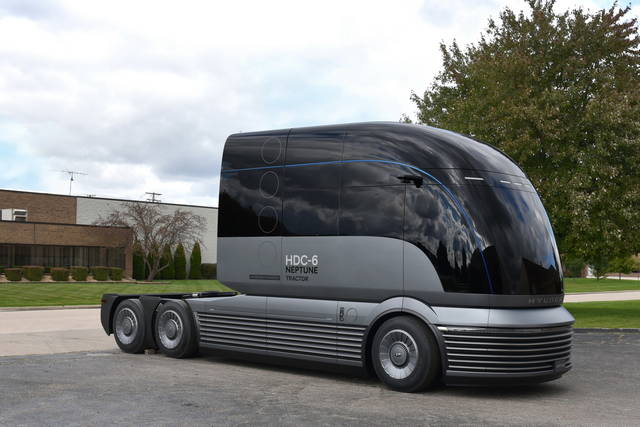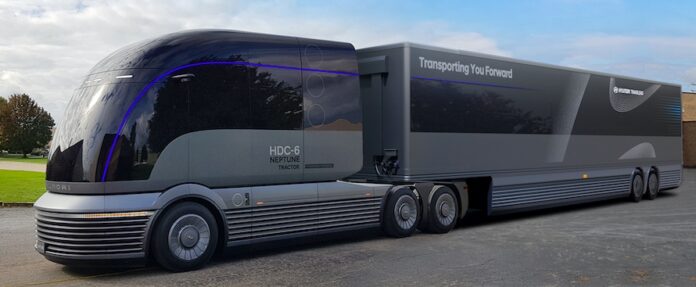It is now certain that the future of transportation will depend on hydrogen. Will we finally put hydrocarbon propulsion to rest? We are dealing with a revolution that could potentially overtake electric vehicles. Let’s see what’s coming.
The REVOLUTION OF TRANSPORT: the first HYDROGEN vehicles have arrived
Added to the fact that hydrogen is a potentially inexhaustible source of energy, – as it can also be produced from water electrolysis – the advancement of technology are making its production increasingly economical and environment-friendly. It is obvious that the core of most vehicles will be powered by hydrocarbon, which will find its way back into the ecosystem in the form of water vapor.
# A revolutionary pick-up truck: almost two thousand kilometers of autonomy

All major car manufacturers are headed in this direction and are consequently preparing to launch several types of vehicles on the market. Shortly after the unfortunate presentation of Tesla’s Cybertruck, a fully electric and theoretically indestructible pickup, U.S. based Glickenhaus announces the next market launch of an extremely versatile hydrogen-powered vehicle. To underline the reliability and sturdiness of this vehicle, it will also participate in the grueling Baja 1000 rally, which takes place in Baja California. In the event of a successful outcome, the race will earn the vehicle the recognition it needs to become most reliable in the world. Furthermore,Glickenhaus has declared that the 4-door model truck will feature a minimum autonomy of 900km, while the more aggressive two-door model will be able to travel up to 1800 km without refuelling.
# The world’s first mass-produced hydrogen truck

While other car, train and airplane manufacturers are working on a come back, the revolution also extends to trucking. Backed by twenty years of experience in the research and development of fuel cell powered vehicles, Hyunday have released images of a new version of the Xcient Fuel Cell – the world’s first mass-produced hydrogen-powered truck.
Xcient Fuel Cell 2021 has a dual power supply, hydrogen and electric: it is equipped with a 180 kW hydrogen fuel cell system, with the addition of two 90 kW batteries and a 350 kW electric motor, with a maximum torque of 2,237 Nm. Seven tanks contain approximately 31 kg of hydrogen, while the electric engine is powered by three batteries.
# Some problems still have to be solved
The environmental impact of these trucks is crucial to encourage car manufacturers to invest in a technology that had been abandoned for several years. The costs of obtaining hydrogen, its storage as well as vehicle production initially put a premature end to the development of the technology. Assuming the future of electric cars is not as bright as initially foreseen, the urgency to find alternative solutions to internal combustion engines provides new stimuli for the research and development of hydrogen-powered vehicles.
Yet many problems remain unresolved. In addition to the abovementioned, a distribution network is missing, as optimal functioning of the vehicles unfortunately requires very expensive materials. Additionally, the safety of hydrogen and electric vehicles is still not equal to that of traditional vehicles. Regardless, despite a few crucial aspects, the direction we are headed in is clear. In future, the benefits of hydrogen cell propulsion will pave the way for the greatest challenge in the world of transportation since the birth of the internal combustion engine.
FABIO MARCOMIN
(Original article by Roberto Binaghi)











